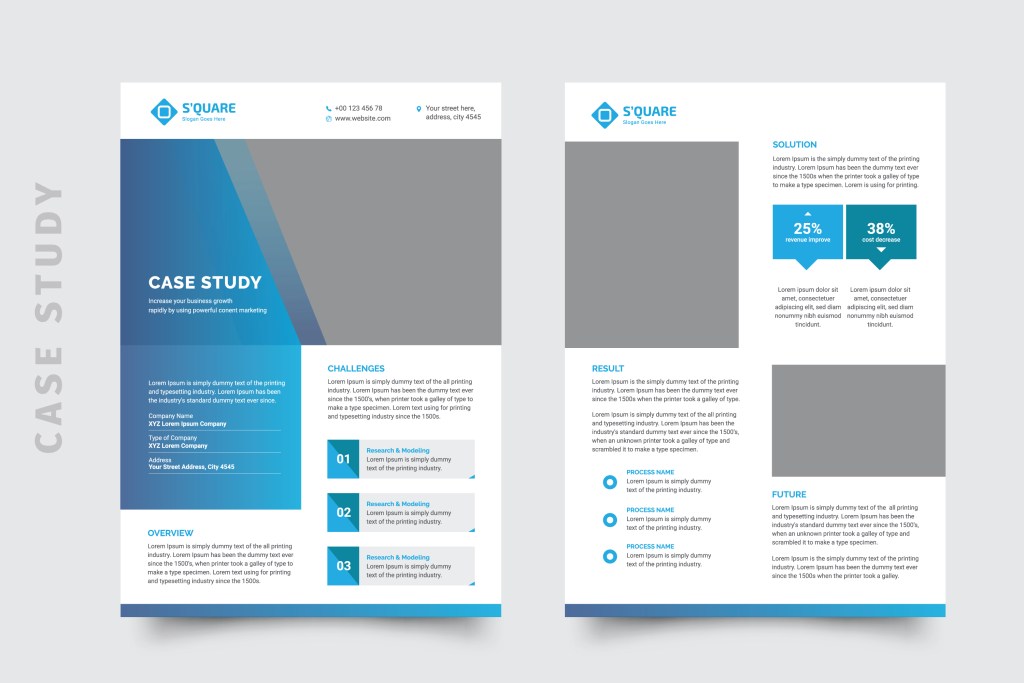Case studies are used by businesses for marketing purposes all the time. Their goal is most often to show how a product or service has been used successfully by a company’s customers. Instead of advertising materials, which generally talk about a product or service and sing its praises and describe features, case studies allow businesses to show what life was like before and after using a product or service.
But, other than being a great “before and after” tool, why are case studies important for your company? The answer is that testimonials, reviews, and other forms of social proof don’t tell the whole story. A case study, which provides evidence-based information can help persuade customers in a way the previously mentioned types of social proof cannot.
If you’ve found yourself confused about the purpose of case studies, the following guide should fill you in.

What are case studies?
Let’s back up a bit for just a moment and talk a little more in-depth about what case studies are. Perhaps you’ve heard marketing experts speak on the subject of storytelling. Alternatively, maybe you’ve read articles online about it. Regardless, you probably know that storytelling is a way to connect with your prospect. It allows you to create empathy and show the customer that you’re really not different from them.
When done right, storytelling can help show that you understand your customer, that you care about them, and that you’re worthy of their trust. That’s all a good case study is. It’s a marketing piece that uses a story-based structure to highlight all the problems a specific customer had before buying and using your product or service. It then describes how the customer found out about those same products or services, how they began using them, and how they helped the customer overcome the problems they had before purchasing from you.
A case study is a superb way to build authority in your industry or niche. Just keep in mind that case studies are based on actual events and real customers. Don’t make up fake customers and then tell a story about them. It might work for a while, but if anyone goes digging or wants to speak to the people involved and then discover it was all a ruse, your reputation will take a nosedive from which it might not recover.
Why use case studies?
Outside of what we’ve already mentioned above, case studies should help bring potential customers farther down the buying journey. After reading a case study, an individual ought to be a step closer to a purchasing decision. For example, maybe the customer has been swaying back and forth, unsure whether to purchase from you or your competitor. A well-written case study can help them decide in your favor.
Say you work in a highly technical field. While highlighting a customer’s use of your product or service, a case study can also demystify and clarify them by explaining them in terms everyone can understand. Case studies are perfect sales tools without the self-promotional “sales speak” one typically sees in advertising.
Attract customers
Case studies provide real-world examples of your products or services in action. They reinforce in the minds of those who read them that what you’re offering works. Moreover, they give you the opportunity to highlight any unique processes you have that allowed you to provide those products or services. In other words, a case study can allow you to brag a bit, show off your ability to innovate, and ultimately provide evidence that you’re a serious company that people should deal with.
Gain media exposure
You can also use case studies to begin conversations with journalists. If you’d like your company to be featured or mentioned in a specific publication, podcast, radio interview, or even television spot, being able to offer journalists something interesting is far better than asking for publicity. Suppose you do it right and develop relationships with journalists and editors that cover your industry. In that case, you can use a case study to effectively get information about your brand and its offerings in front of your target audience.

The benefits of case studies
Many businesses don’t use case studies much, if at all. That’s a mistake because they are immensely influential when written well and used correctly. People connect with stories. Remember that case studies allow you to paint a picture in the minds of your prospects and evoke emotions that they’ll remember the next time they see your brand.
When you tell your story using data-backed evidence, remember to start with the problem. Follow that with an outline of the different options available to your customers. Then, show the proven and positive results one or more of your customers experienced after purchasing one of your products or services.


